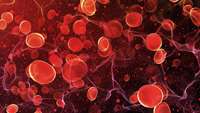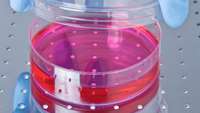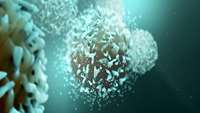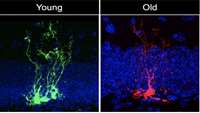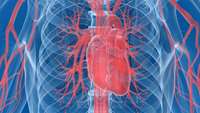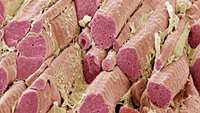Novel regeneration method to repair severely damaged lungs
New research has described a model capable of regenerating severely damaged lungs to meet criteria for transplantation. This development has the potential to increase the number of lungs available for transplant.
New findings provide hope for treatment of multiple myeloma
Researchers at Karolinska Institutet have investigated the use of low dose venetoclax, an experimental drug, for the treatment of the heterogeneous cancer disease multiple myeloma in patients who had relapsed on standard therapies.
Mesenchymal stem cell fate controlled by varying culture stiffness
Researchers from Tokyo Metropolitan University (Japan) have quantitatively characterized the heterogeneity in the responsiveness of mesenchymal stem cells (MSCs) to the elastic modulus of culture substrates. The localization dynamics of YAP and RUNX2 proteins in cell nuclei and how this changed with stiffness, provides a basis to design the substrate elastic modulus to control the state of stem cells.
Effectiveness of CAR-T therapy could be indicated by presence of stem cell memory T cells
Having studied the effectiveness of CAR-T therapies in children with leukemia, researchers and clinicians at University College London (UCL) and Great Ormond Street Hospital (both London, UK) have discovered a subset of T cells that are likely to contribute to the success of the treatment.
Study reveals neural stem cells age rapidly
In a new study published in Cell Stem Cell, a team led by USC Stem Cell scientist Michael Bonaguidi, Ph.D., demonstrates that neural stem cells—the stem cells of the nervous system—age rapidly.
Self-organizing cardioid spontaneously develops heart with hollow chambers
Scientists from the Austrian Academy of Sciences (Vienna, Austria) have for the first time developed a self-organizing heart organoid, known as a cardioid.
Stem cells obtained from urine may be a strong iPSC source
A new study published in Scientific Reportsclaims to have isolated and characterized stem cells from human urine. The discovery, made by researchers from Heinrich Heine Universität Dusseldorf (Germany), would allow for the non-invasive collection of patient-specific stem cells that could be easily transformed into iPSCs or differentiated for regenerative therapies.
Safety of osteoarthritis cell therapy confirmed in new study
A team of researchers from the Center for Stem Cell and Regenerative Medicine (CSCRM) at Tokyo Medical and Dental University (Japan) has recently confirmed the safety of their novel stem cell therapy to treat knee pain caused by osteoarthritis.



